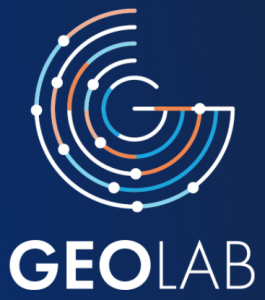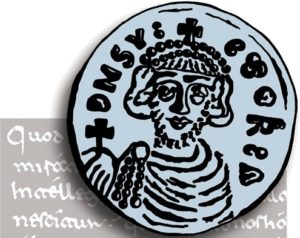Webinar on “Ground Improvement for Earthquake Engineering” (25 June 2021) – Prof. Kyle Rollins
On 25 June 2021, Prof. Kyle Rollins (Brigham Young University, Provo, Utah) will present his work on “Ground Improvement for Earthquake Engineering” during a webinar. Those interested will find the link in this flyer.
25 June 2021 – 10.00-12.00 CET “Ground Improvement for Earthquake Engineering”.
GEOLAB project – webinar di presentazione delle infrastrutture di ricerca – 23 giugno 2021
Thanks to the GEOLAB project, it is possible to offer – free of charge – a total of 11 research facilities in the fields of geotechnical and environmental engineering. You can find information about these 11 research infrastructures in the attached PDF file.
As you and/or your research team may be interested on using some of these research infrastructures, we let you know that on June 23rd, from 10 to 12 AM (CEST), a webinar to present them and the call for proposal mechanisms will be celebrated.
The GEOLAB project will last for three years and there will be call for proposals every year.
Attachment: D08.01 Description Geolab RI_v1.0_FINAL
Webinar registration: link
Computational Modelling for Future Research in Geoenvironmental Sciences webinar series – 11th July 2021
The organising committee of the “Computational Modelling for Future Research in Geoenvironmental Sciences” (CMFRGS) webinar series invites you to its 1st webinar on “Discrete Element Method” presented by A/Prof Sergio Galindo Torres.
Webinar 1 is scheduled to be hosted at 9:00 am (CEST), 14th July 2021 with registration for this webinar closing at 24:00, 11th July 2021 (CEST).
You may find further info and register (free but mandatory) here: https://www.m2clab.com/cmfrgs-webinars
Invited Lectures Series for the MSc in Soil Mechanics at Imperial College London – Dr Michael Bardanis – 23rd June 2021
It is with great pleasure that I invite you to the talk on “Experiences from the long-term measurement of soil suction in the field” by Dr Michael Bardanis on Wednesday 23rd June 2021, at 4pm London time.
The talk is organised as part of our Invited Lectures Series for the MSc in Soil Mechanics at Imperial College London and it is open to Engineers, Academics, Researchers and Students at all levels.
To attend the Lecture please follow the link below (no prior registration is required):
- link [updated due to technical issues]
Feel free to pass on this invitation to any interested parties.
Katerina Tsiampousi (MSc Soil Mechanics Course Director)
- Flyer: download
Ciclo di seminari online del Prof. Rollins – Università G. d’Annunzio, giugno 2021
Vi segnaliamo il ciclo di seminari che il Prof. Kyle M. Rollins (Brigham Young University, Provo, Utah) terrà il prossimo mese di giugno sui temi “Liquefaction and Lateral Spread” e “Ground Improvement for Earthquake Engineering“.
I seminari sono organizzati dal Dipartimento di Ingegneria e Geologia dell’Università degli Studi “G. d’Annunzio” Chieti-Pescara in modalità telematica.
I dettagli sono riportati nella locandina allegata: Webinars_June_2021_Prof. Rollins
Ciclo di lezioni tenute dal prof. Gazetas – UniSannio 7-10-14 maggio 2021
Il Dipartimento di Ingegneria dell’Università del Sannio ha organizzato un ciclo di lezioni sull’Interazione Terreno-Struttura tenute dal prof. George Gazetas, professore emerito presso la National Technical University of Athens.
In allegato la locandina del seminario, a cui è possibile partecipare mediante la compilazione del seguente modulo:
https://docs.google.com/forms/d/e/1FAIpQLSc1ZV6vgz6aV5FQoI4wpFsNReQDpEY-2OT0LRhlHp5vohumhA/viewform
Le lezioni si svolgeranno in modalità telematica nei giorni 7-10-14 maggio 2021 dalle ore 16.00 alle ore 18.00.
Allegato: Flyer_University of Sannio_Gazetas
ISSMGE Virtual University
Vi segnaliamo l’iniziativa “ISSMGE Virtual University – An Open Access Educational Platform” (http://virtualuniversity.issmge.org/).
The Virtual University is an initiative launched by President Charles Ng. The current OpenEdX platform was developed by the Innovation and Development Committee chaired by Dimitrios Zekkos, with oversight from the Board and was publically made available in March 2020. The objective of the Virtual University is to provide open source, high quality technical content that can be used by engineers of practice, as well as undergraduate and graduate students all around the world.
The Virtual University includes, free courses, webinars, as well as short educational videos, and is integrated with the open-access Online Library of ISSMGE. The content of the Virtual University will continue to be updated through various initiatives of ISSMGE, and with the support of its Technical Committees, conference organizers and Member Societies.
L’ultimo seminario in ordine di tempo, disponibile sulla piattaforma, è stato tenuto dal prof. Nilo Cesar Consoli dell’Universidade Federal do Rio Grande do Sul (Brasile) sul tema “Experiences in Sustainable Geotechnics” (http://virtualuniversity.issmge.org/courses/course-v1:ISSMGE+TC307-01+2021/about)
GEER webinar on Port of Beirut Explosion – April 28, 2021
Vi segnaliamo un webinar organizzato da GEER (Geotechnical Extreme Events Reconnaissance Association Turning Disaster into Knowledge – Sponsored by the U.S. National Science Foundation) sulle conseguenze dell’esplosione di Agosto 2020 al Porto di Beirut. Il webinar è gratuito e si terrà il 28 aprile, in orario serale per l’Italia.
Durante il webinar si mostreranno le conseguenze strutturali e geotecniche dell’esplosione e si farà vedere come poter utilizzare dati satellitari e tecnologie innovative in scenari post-disastro.
Ulteriori informazioni nella locandina: GEER Port of Beirut Webinar
GEER website: http://www.geerassociation.org/








